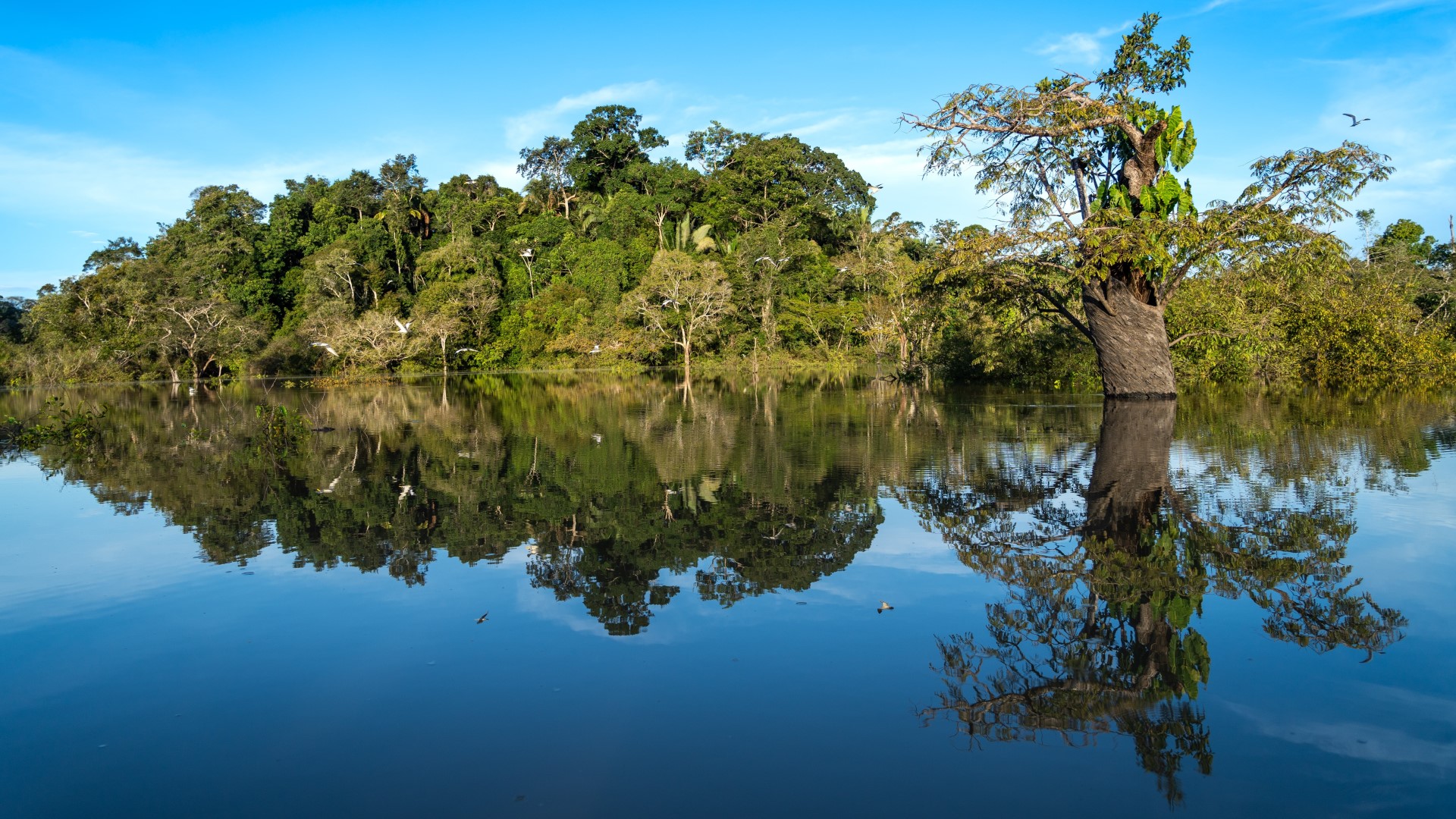BRICS leaders endorse unprecedented fund for conservation of tropical forests
The bloc calls upon supporting countries to announce "ambitious contributions” to the Tropical Forests Forever Fund

By Ministério do Meio Ambiente e Mudança do Clima
In the declaration adopted at the 17th BRICS Summit, held from Sunday (6 July) to Monday (7 July) in Rio de Janeiro, the group’s leaders expressed their support for the Tropical Forests Forever Fund (TFFF), a mechanism proposed by Brasil aimed at providing large-scale, predictable, and performance-based payments to countries with tropical forests, with the objective of preserving and expanding forest cover.
Launched at COP28 in the United Arab Emirates, the Fund is expected to be delivered at COP30, the United Nations Climate Change Conference to be held in Belém, Pará, in November, under the presidency of Brasil.
“We welcome the plans to launch the Tropical Forests Forever Fund at COP30 in Belém and recognize it as an innovative mechanism designed to mobilize long-term, results-based financing for the conservation of tropical forests. We encourage potential donor countries to announce ambitious contributions in order to ensure the timely capitalization and operationalization of the fund,” states the Rio de Janeiro Declaration, endorsed by Heads of State and Government on Sunday.
The BRICS Leaders’ Framework Declaration on Climate Finance, launched on Monday, noted that the TFFF holds the potential to serve as a promising blended finance instrument, capable of generating predictable and long-term financial flows for the conservation of standing forests. An initiative of the Brazilian presidency, the document calls on developed countries to fulfill their commitments under the Paris Agreement, including the goal of mobilizing USD 300 billion annually by 2035 to support developing countries, with a view to scaling up that amount to $1.3 trillion.
“The Global South has conceptualized and is building an instrument that will leverage public resources to mobilize private financing at a ratio of 1 to 4, with the objective of protecting tropical forests, an initiative that will make a decisive contribution to the planet’s climate regulation,” emphasized Marina Silva, Minister of the Environment and Climate Change, who is attending the summit alongside President Lula. “The support of BRICS is essential to ensure the TFFF becomes operational by COP30 and integrates into efforts to mobilize USD 1.3 trillion in annual climate finance by 2035, as agreed at COP29 in Baku”.
The Fund was also referenced by President Lula during the opening of the third plenary session of the summit, dedicated to the theme “Environment, COP30 and Global Health.” He stated: “The BRICS Framework Declaration on Climate Finance, adopted today, outlines the necessary sources and alternative models for climate financing. The Tropical Forests Forever Fund, which we will launch at COP30, will provide remuneration for the ecosystem services rendered to the planet."
The TFFF has been increasingly recognized as an emerging model for global climate finance. During the London Climate Action Week, held from 21 to 29 June, the Fund received support from both beneficiary and potential donor countries, as well as from the private sector and multilateral organizations (read more here).
Model
The Fund’s financing model combines public investment with private capital mobilization, aiming to generate approximately USD 4 billion annually for distribution among countries with tropical forests. Payments will be allocated proportionally to each country's preserved area of tropical and subtropical moist forest – following satellite verification confirming deforestation levels below an established threshold. Deductions will apply for each hectare of forest that is deforested or degraded.
This amount is equivalent to three to four times the discretionary budgets of the Ministries of Environment in major forested countries—and dozens or even hundreds of times more than what is currently paid by the voluntary carbon market. In other words, the TFFF holds the potential to exert a transformative impact on national forest conservation policies.
The Fund also distinguishes itself from traditional models through several key elements. It functions as a revenue-generating investment fund rather than a grant-based mechanism; it provides payments for results rather than project financing; it rewards standing forests rather than compensating for avoided deforestation; and it maintains close engagement with Indigenous Peoples and traditional communities, who play a direct role in forest protection. The mechanism proposes allocating at least 20 per cent of national payments to these populations.
Tropical forests regulate the global climate, harbor irreplaceable biodiversity, provide freshwater, and sustain the livelihoods of billions of people. The survival of humanity depends on them. The Tropical Forests Forever Fund presents a transformative opportunity to significantly scale up financial support to countries with tropical forests.
English version: Michel Emmanuel Félix François (UFC)
Proofreading: Tadeu Azevedo (POET/UFC)
